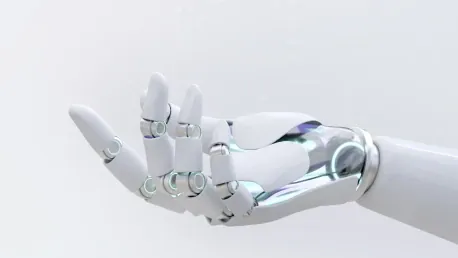In the rapidly evolving landscape of today’s workplace, the tension between integrating AI and maintaining a people-first HR approach presents significant challenges. The people-first approach, which emphasizes employee well-being, diversity, equity, and inclusion (DEI) and flexibility, has been prevalent in recent years. However, recent reports indicate a shift away from this model, with only about one in four companies continuing to prioritize it. Research by Leapsome, in collaboration with Opinium, reveals that 85% of HR leaders foresee notable changes in workplace roles due to AI. This shift towards automation underscores an ideological struggle between emphasizing human-centric values and technological innovation, raising questions about the future of DEI initiatives and employee trust.
The Struggle Between Human-Centric and AI-Driven Policies
A staggering 92% of HR leaders are encountering internal resistance when attempting to maintain people-centric workplace policies. This resistance suggests an ongoing ideological tug-of-war within organizations, where HR departments find themselves mediating between employee expectations and corporate strategies. The topics at the heart of this battle include automation, machine learning, and the future of diversity initiatives. The success of a company in these areas can profoundly impact its talent lifecycle. Poor technology adoption risks damaging employee trust, while neglecting DEI efforts may drive away diverse and qualified talent.
Despite the high stakes involved, HR departments often find themselves excluded from strategic discussions even as they are expected to implement emerging policies. According to the report, more than half of HR professionals feel pressured to uphold return-to-office mandates, despite broadly believing that alternative work models could be more effective. The friction between corporate mandates and employee preferences highlights the need for a balance that aligns with both business objectives and individual well-being.
Experts in the field, such as Lisa Highfield from McLean & Co., advocate for collaborative approaches between HR and executive leadership to craft and implement AI strategies effectively. Such cooperation can help minimize organizational tension, allowing for smoother transitions and more successful AI adoption. As companies navigate this transformative era, the alignment of technological goals with human-centric values remains critical.
The Evolving Landscape of DEI Initiatives
While technological advancements dominate discussions, DEI initiatives are also in a state of flux. Many Fortune 500 companies have been scaling back their diversity efforts due to evolving federal guidance and the overall political climate. This reduction in focus on DEI poses long-term risks for companies, as inclusive practices are integral to attracting and retaining diverse talent pools. The consideration of diverse perspectives within organizations not only fosters innovation but also strengthens trust and loyalty among employees.
Studies suggest that neglecting DEI can have far-reaching implications, affecting everything from talent acquisition to employee satisfaction and overall organizational culture. As HR departments grapple with balancing AI integration and maintaining DEI efforts, the importance of sustained, inclusive practices becomes clear. Organizations must be vigilant in ensuring that advancements in technology do not overshadow the fundamental principles of diversity and inclusion.
The dynamic nature of technology and shifting cultural norms requires adept management from HR leaders. Fostering an environment where both AI and DEI can coexist harmoniously is not merely advantageous but essential. As technological capabilities expand, the measure of a company’s success will increasingly depend on its ability to maintain an inclusive and equitable workplace culture.
Toward Balanced and Effective Work Environments
An astounding 92% of HR leaders face significant pushback when trying to enforce people-focused workplace policies. This resistance highlights a persistent ideological struggle within organizations, where HR acts as a mediator between employee expectations and corporate strategies. The contentious issues include automation, machine learning, and diversity initiatives, all of which are critical to a company’s talent lifecycle. Poor tech adoption can erode employee trust, while ignoring DEI efforts can lead to the loss of diverse and skilled staff.
Despite these high stakes, HR departments are often left out of strategic discussions, yet they’re expected to implement new policies. More than half of HR professionals feel pressured to enforce return-to-office mandates even though they believe alternative work models could be more effective. This tension underscores the necessity for a balance that considers both business goals and employee well-being.
Experts like Lisa Highfield from McLean & Co. advocate for a collaborative approach between HR and executives to develop and apply AI strategies. Such teamwork can reduce organizational friction, ensuring smoother transitions and successful AI adoption. As companies navigate this transformative period, aligning technological and human-centric goals remains essential.









